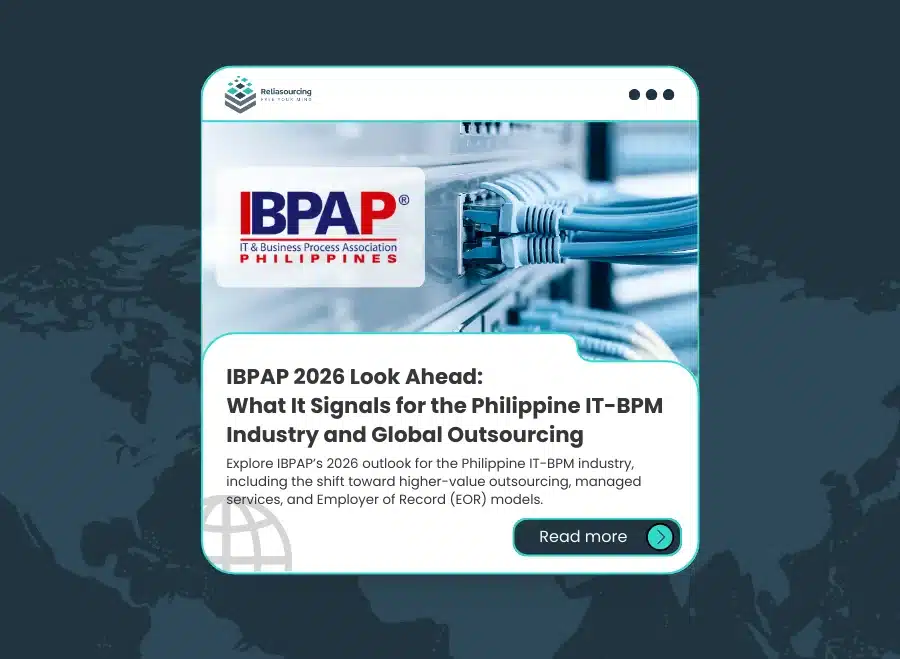Ever wondered why your take-home pay’s smaller than the salary stated in your job offer? You’re not alone. Many Filipino employees find themselves confused when they first check their payslips and see multiple deductions they don’t fully understand.
The truth is, those deductions are not random since they are part of your legal and social protection as a worker. Understanding what’s being deducted from your salary and how these amounts are calculated ensures transparency, helps you plan your finances more effectively, and gives you peace of mind knowing your benefits are being handled properly.
What Are Salary Deductions?
Salary deductions are the amounts withheld from your gross pay to comply with laws, fund your benefits, or fulfill voluntary obligations. The deductions can be grouped into two main types:
- Mandatory deductions — required by law and remitted to government agencies such as SSS, PhilHealth, Pag-IBIG, and the Bureau of Internal Revenue (BIR).
- Voluntary deductions — optional amounts deducted with your consent, such as personal loans, health insurance, or cooperative savings.
Employers are legally required to withhold these contributions and remit them on a timely basis. Failure to do so can result in penalties under labor and tax laws.
The Four Major Mandatory Deductions
1. Social Security System (SSS)
The SSS provides financial protection in cases of sickness, maternity, disability, retirement, or death. Both the employer and the employee contribute to the fund, amounting to 15% of the employee’s monthly salary.
- Employer share: 10% of your monthly salary credit (shouldered by the employer)
- Employee share: 5% of your monthly salary credit
- Formula: Monthly salary × 5% = Employee share
Example:
If you earn ₱20,000: ₱20,000 × 5% = ₱1,000 (employee share)
You can verify your SSS deductions through your My.SSS Member Portal.
2. PhilHealth
PhilHealth contributions ensure access to healthcare and hospitalization benefits for members and their dependents.
- Rate: 5% of monthly salary, shared equally by employer and employee, with 2.5% each
- Salary floor: ₱10,000 | Ceiling: ₱100,000
- Formula: (Monthly salary × 5%) ÷ 2 = Employee share
Example:
If you earn ₱20,000: ₱20,000 × 5% = ₱1,000 ÷ 2 = ₱500 (employee share)
Check the latest contribution schedule on the PhilHealth official website.
3. Pag-IBIG Fund (HDMF)
The Home Development Mutual Fund, commonly known as Pag-IBIG, helps employees save for housing, calamity, and retirement programs.
- Rate: 1-2% of monthly salary
- Salary ceiling: ₱10,000
- Maximum employee share: ₱200
Example:
If you earn ₱20,000: ₱10,000 × 2% = ₱200 (employee share)
Check out the contribution guide at Pag-IBIG Fund.
4. Withholding Tax (BIR)
The withholding tax is a portion of your income automatically collected by your employer as an advance payment for your annual tax obligations.
- Exemption threshold: ₱250,000 and below annual income (under TRAIN Law)
- Computation: Based on BIR’s Revised Withholding Tax Table
- Purpose: Ensures employees meet their annual tax dues progressively throughout the year
Example (simplified):
If you earn ₱25,000 monthly and have no dependents, your withholding tax is around ₱625 monthly or ₱7,500 annually based on BIR rates.
Use the BIR Withholding Tax Calculator for exact figures.
Voluntary Deductions You Might See on Your Payslip
Aside from mandatory deductions, your payslip might also include voluntary deductions, which are optional and authorized by you. These may include:
- Company or cooperative loan repayments
- Health or life insurance premiums
- Savings programs
- Union dues or membership fees
Employers cannot make these deductions without your written consent. Always double-check your payslip or HR records to ensure accuracy.
How to Compute Your Take-Home Pay
Once all deductions are applied, your take-home pay (or net pay) is what’s left of your gross salary.
Formula:
Take-Home Pay = Gross Salary – (SSS + PhilHealth + Pag-IBIG + Withholding Tax + Voluntary Deductions)
Example:
If your monthly salary is ₱25,000, here’s an approximate breakdown:
- SSS: ₱1,125
- PhilHealth: ₱625
- Pag-IBIG: ₱200
- Withholding Tax: ₱625
Total Deductions: ₱2,575
Estimated Take-Home Pay: ₱25,000 – ₱2,575 = ₱22,425
Note: Figures may vary based on the latest government circulars and company-specific deductions.
Common Questions About Salary Deductions
1. Are salary deductions mandatory?
Salary deductions are mandatory for SSS, PhilHealth, Pag-IBIG, and income tax as they ensure employees have access to social protection, healthcare, and retirement benefits.
2. Do contractual or part-time employees have salary deductions?
Contractual or part-time employees have salary deductions if they are covered under SSS, PhilHealth, and Pag-IBIG guidelines and meet the minimum earnings requirement.
3. Can an employer deduct additional charges without consent?
Employers cannot deduct any amount from an employee’s pay without consent unless it is required by law or covered by a valid employment contract.
4. How can I verify if my employer remits my contributions?
You can verify salary deductions by checking your online accounts with SSS, PhilHealth, and Pag-IBIG. Each agency provides digital access to your contribution history.
5. What should I do if my employer isn’t remitting my contributions?
If your employer isn’t remitting your contributions, approach your HR first. Should negotiations or communications fail, file a report with the respective agency or contact the Department of Labor and Employment (DOLE) for assistance.
Why Salary Deductions Are Worth It
It’s easy to think of deductions as a loss, but they’re actually investments in your financial security. The contributions give you access to healthcare, housing loans, calamity assistance, and future retirement benefits.
When viewed in the long term, your monthly contributions help ensure stability for you and your family, especially during life’s uncertainties.
Final Thoughts
Salary deductions might seem complicated, but they serve an essential purpose: protecting your welfare and ensuring you benefit from the country’s social safety nets.
Take time to review your payslip regularly, understand each deduction, and verify your contribution records. Knowledge of these deductions empowers you as an employee and strengthens trust in the system that safeguards your livelihood.
Love our culture of compliance? Want to be part of a workplace that ensures your financial security? Check out our Careers Page to see if you’re a perfect fit for one of our roles! Be part of #LifeAtReliasourcing.
About Reliasourcing
Reliasourcing is a premier outsourcing solutions provider in the Philippines. We deliver tailored services that help businesses across industries achieve operational efficiency and scalability. With a focus on customer experience and innovation, Reliasourcing continues to be a trusted partner in unlocking potential through outsourcing.
Follow us on Facebook, Instagram, LinkedIn, YouTube, and X for more information on the latest trends and insights in outsourcing, the industry, and the Philippines.
Connect with us, or become part of our growing team today!









